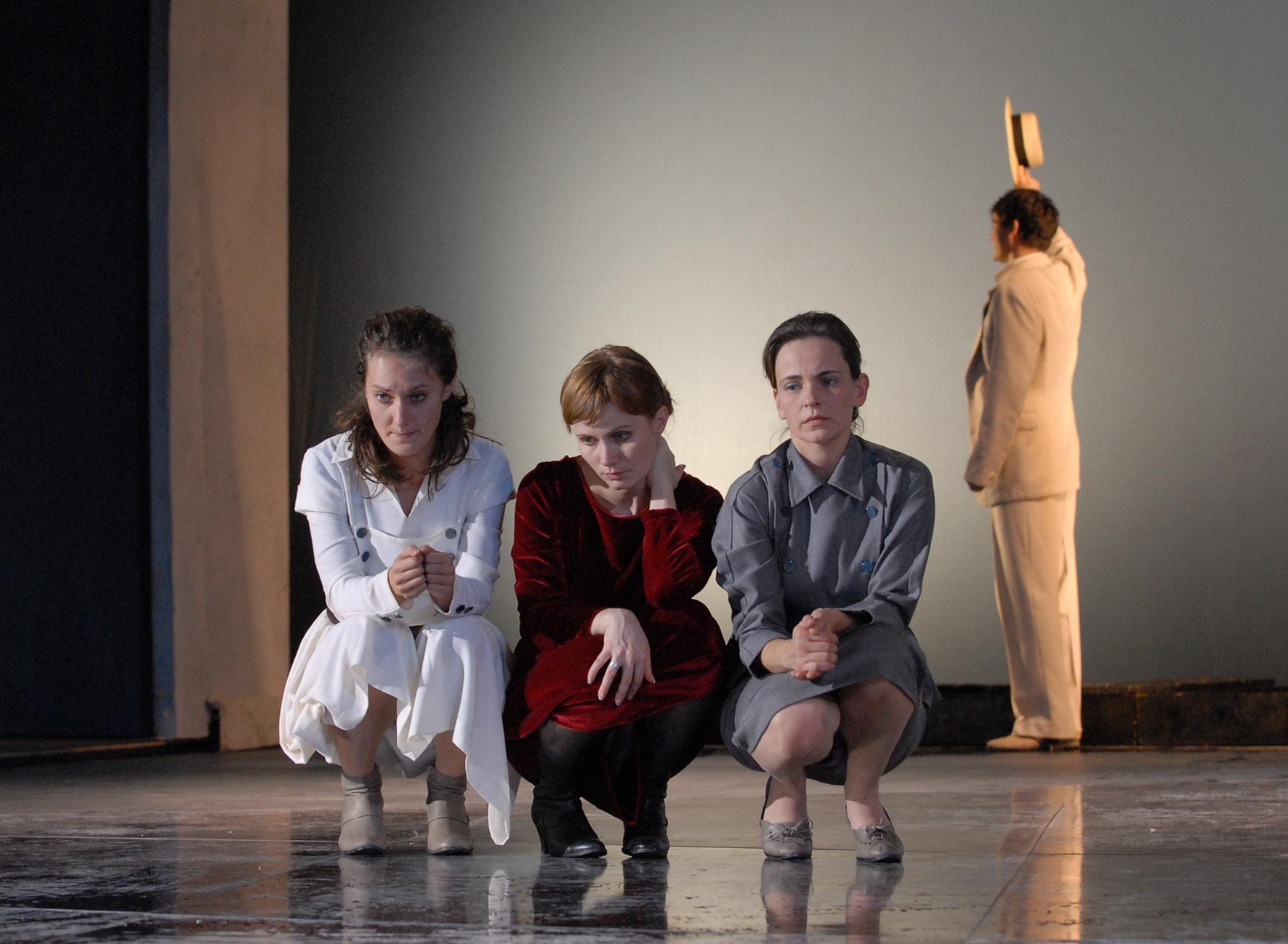27 November | 19:00 – www.fnt.ro

The show has been available for online viewing from Friday 27 November 19:00 till Sunday 29 Noveber 19:00.
The three sisters’ greatest desire is to go to Moscow, but because there is nothing to stop them, they are not going.
[same_day_events_link]
Translated to Hungarian by: Kosztolányi Dezső
Cast:
Andrey Sergheyvich Prozorov: András Hatházi
Natalia Ivanovna: Enikő Györgyjakab
Olga: Andrea Kali
Masha: Imola Kézdi
Irina: Hilda Péter
Kulygin Fyodor Ilych: Attila Orbán
Vershinin Alexandr Ignatyevich: Zsolt Bogdán
Tuzenbach Nicklai Lvovich: Balázs Bodolai
Solyony Vassily Vasilyevcih: József Bíró
Chebutykin Ivan Romanovitch: Iván Dengyel
Fedotik Alexei Petrovich: Levente Molnár
Rode Vladimir Karlovich: Ferenc Sinkó
Ferapont: György Barkó
Anfisa: Ágnes Kakuts
Svetlana: Tünde Skovrán
Protopopov: Ervin Szűcs
Musicians, officers, firemen: Szabolcs Balla, András Buzási, Ernő Galló, Alpár Fogarasi, Róbert Laczkó Vass, Loránd Farkas, István Albu, Csongor Köllő
Dramaturgy by: András Visky
Directed by: Gábor Tompa
Set Design by: Andrei Both
Costumes: Carmencita Brojboiu
Music: Rahmaninov, Shostakovich, Vasile Şirli
Duration: 2h 40min
Producer: Hungarian Theatre of Cluj – 2008
In Hungarian, with Romanian and English subtitles
Not recommended for viewers under 14
„Three Sisters is important for me as a play about redemption. In fact, it is the sacred level of the drama that interests me. The three sisters are actually three projections of the same woman: the child, the woman and the mother who have to stay together in order to survive. The Father’s ghost floats around them; they cannot escape from him and they don’t want to. The Son also appears as the sisters, at the beginning of the play, experience the arrival of Vershinin in an almost messianic way. In him they see the saviour, the embodiment of Moscow. Finally, the Holy Spirit is also present, identifiable in the consolation arising from the ‘solemnity of weeping,’ the suffering which the characters have to embrace, each in their different ways. I am also attracted by the musicality of Three Sisters, which connects it to the absurd plays which I like so much. This musicality, like any other symphonically structured work, demands a high precision and an accuracy of tone, colour, atmosphere, shading and an intense spiritual identification.” (Gábor Tompa)
Phoro credit: István Biró










